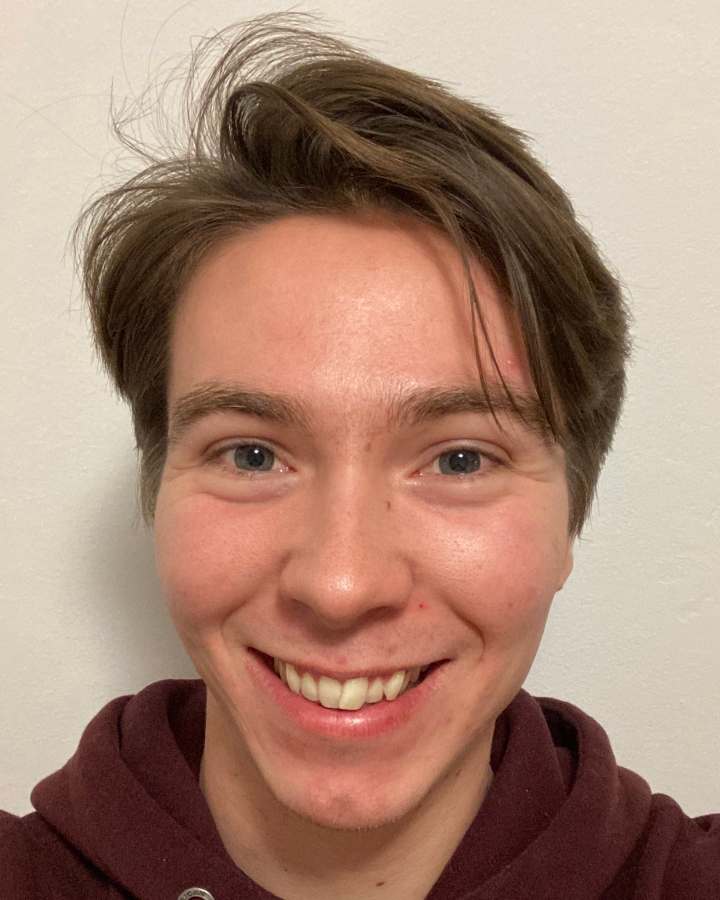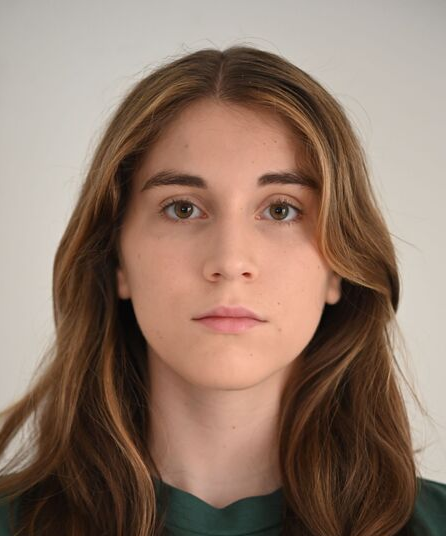Gerti Kappel
O.Univ.Prof.in Dipl.-Ing.in
Mag.a Dr.in techn.
Gerti Kappel
- Email: gertrude.kappel@tuwien.ac.at
- Phone: +43-1-58801-18870
- Office: HC0215 (1040 Wien, Favoritenstrasse 9)
- About:
Gerti Kappel is full professor at the Institute of Information Systems Engineering at TU Wien, chairing the Business Informatics Group. Prior to that, from 1993 to 2001, she was a full professor of computer science (database systems) and head of the Department of Information Systems at the Johannes Kepler University Linz.
From 2016 to 2019, she was a member of the dean’s team of the Faculty of Informatics responsible for research, diversity, and financial affairs. Since the beginning of 2020 she acts as the dean of the Faculty of Informatics at TU Wien.
Her current research interests include Model Engineering, Web Engineering, and Process Engineering, with a special emphasis on cyber-physical production systems. Striving for the unity of research and teaching, she co-authored and co-edited among others „UML@Work“ (dpunkt.verlag, 3rd ed, 2005), „UML@Classroom“ (Springer, 2015), and „Web Engineering“ (Wiley, 2006).
- Orcid: 0000-0002-4758-9436
- Keywords: Process Engineering, Data Engineering, Services Engineering, UML and XML, Business Process Management (BPM), Model Engineering, Workflow Management Systems (WFMS), Web Engineering, Object Orientation, Software Engineering
- Roles: Head of Services, Full Professor
Publications
Debugging Model-to-Model Transformations
 Johannes Schönböck
Johannes Schönböck Manuel Wimmer
Manuel Wimmer Angelika Kusel
Angelika Kusel Werner Retschitzegger
Werner Retschitzegger Wieland Schwinger
Wieland Schwinger
Schönböck, J., Kappel, G., Wimmer, M., Kusel, A., Retschitzegger, W., & Schwinger, W. (2012). Debugging Model-to-Model Transformations. In 2012 19th Asia-Pacific Software Engineering Conference. 19th Asia-Pacific Software Engineering Conference (APSEC 2012), Hong Kong, Non-EU. https://doi.org/10.1109/apsec.2012.56
Generic vs. Language-Specific Model Versioning - Adaptability to the Rescue
 Petra Kaufmann
Petra Kaufmann Philip Langer
Philip Langer Martina Seidl
Martina Seidl Manuel Wimmer
Manuel WimmerKeywords:
Astract: In this paper, we discuss how to make a generic model versioning system language-specific by using various adaptation techniques. In particular, we recap some lessons learned during the AMOR project and outline some open challenges for adaptable model versioning systems.
Kaufmann, P., Langer, P., Seidl, M., Wimmer, M., & Kappel, G. (2012). Generic vs. Language-Specific Model Versioning - Adaptability to the Rescue. In Softwaretechnik- Trends. International Workshop on Comparison and Versioning of Software Models (CVSM 2012), Essen, Germany, EU. Gesellschaft für Informatik. http://hdl.handle.net/20.500.12708/54583
Towards Scenario-Based Testing of UML Diagrams
 Petra Kaufmann
Petra Kaufmann Uwe Egly
Uwe Egly Sebastian Gabmeyer
Sebastian Gabmeyer Martina Seidl
Martina Seidl Hans Tompits
Hans Tompits Magdalena Widl
Magdalena Widl Manuel Wimmer
Manuel Wimmer
Kaufmann, P., Egly, U., Gabmeyer, S., Kappel, G., Seidl, M., Tompits, H., Widl, M., & Wimmer, M. (2012). Towards Scenario-Based Testing of UML Diagrams. In Tests and Proofs (pp. 149–155). Springer. https://doi.org/10.1007/978-3-642-30473-6_12
Keywords: Model versioning, conflict resolution, Model-Driven Engineering
Astract: In most engineering disciplines, models are built as pragmatic, yet precise abstractions of huge systems. The model building process requires multiple people jointly elaborating on artifacts, which are analyzed, used to communicate among stakeholders, and act finally as construction plan for realizing the modeled system. In the field of software engineering, modeling languages such as the Unified Modeling Language (UML) provide multiple diagrams to describe various viewpoints of a system in a concrete graphical notation. While the code-centric software engineering discipline adopted those models as visual language for describing the system under study, the increasing complexity of modern software systems accompanied by ever shorter time to market constraints has asked for new techniques. The upcoming Model-Driven Engineering (MDE) approach aims at additionally exploiting models to automatically generate executable code. This paradigm shift lifts models to first-class citizens within the whole engineering process, effectively shaping the primary artifact of change undergoing the collaborative refinement from informal sketches to blueprints. This upgrowth intrinsically demands tool support for managing the models' history including merging of parallel evolved models. Optimistic versioning systems, which are already successfully applied for the management of source code, handle both issues. However, applying those systems to models fails due to the models' graph-based structure. Consequently, first dedicated model versioning systems emerged. Although current model versioning systems provide decent conflict detection facilities, they (1) ignore the graphical representation of the models, and (2) neglect conflict resolution by totally shifting the responsibility to the user.
Yet, the central role of models unifying the human-centric, collaborative abstraction and design process with the computation-centric process of generating executable systems, demands proper mechanisms to foster validity and quality of the merged model.
In this thesis, we first analyze specifics of model versioning and elaborate on the notion of conflict to improve conflict resolution respecting the central role of models. To cope with the human-centric aspect, we present a conflict aware merge strategy to calculate a tentatively merged conflict diagram as accelerator for conflict resolution retaining the graphical representation of the model. The conflict diagram unifies non-conflicting changes and materializes merge conflicts in form of annotations, rendering a coherent picture of the model's evolution. To further support the conflict resolution process, we elaborate on a conflict resolution recommender system on top of the conflict diagram, which recommends automatically executable conflict resolution patterns. Finally, to satisfy validity conditions of the computation-centric aspect, we establish a formal framework based on graph transformation theory, to showcase the feasibility of our approach.
Brosch, P. (2012). Conflict resolution in model versioning [Dissertation, Technische Universität Wien]. reposiTUm. https://resolver.obvsg.at/urn:nbn:at:at-ubtuw:1-49775
Adaptable model versioning based on model transformation by demonstration
 Philip Langer
Philip Langer Jeff Gray
Jeff GrayKeywords: model-driven, modeling, versioning, model transformation, demonstration-based, software development
Astract: Model-driven engineering (MDE) is evermore adopted in academia and industry. In MDE, software models constitute the central artifacts in the software engineering process.
Developing a large software system entails the need for a large number of collaborating developers. Unfortunately, collaborative development of models is currently not sufficiently supported. Traditional versioning systems for code fail for models, because they neglect the graph-based nature of models.
A few dedicated model versioning approaches have been proposed. However, these approaches suffer from four major deficiencies. First, they either support only one modeling language or, if they are generic, they do not consider important specifics of a modeling language. Second, they do not allow the specification of composite operations such as refactorings and thus, third, they neglect the importance of respecting the original intention behind composite operations for detecting conflicts and constructing a merged model. Fourth, the types of detectable conflicts is insufficient and not extensible by users.
To tackle these deficiencies, we present an adaptable model versioning framework, which offers out-of-the-box support for all modeling languages, but also allows to be adapted for for specific modeling languages. For easily specifying language-specific composite operations, we propose a novel technique called model transformation by demonstration. These operation specifications constitute the adaptation artifacts for enabling the detection of applications of specified composite operations. Furthermore, we introduce techniques for detecting additional types of conflicts caused by concurrently applied composite operations as well as for revealing potentially unfavorable merge results.
Langer, P. (2011). Adaptable model versioning based on model transformation by demonstration [Dissertation, Technische Universität Wien]. reposiTUm. https://resolver.obvsg.at/urn:nbn:at:at-ubtuw:1-55870
Teaching
Project in Computer Science 1
Semester: 2025S; Nr: 194.145; Type: PR; Hours: 4.0; Language: if required in English; View on TISSSeminar for Master Students in Business Informatics
Semester: 2024W; Nr: 180.779; Type: SE; Hours: 1.0; Language: English; View on TISSResearch Seminar
Semester: 2024W; Nr: 188.446; Type: SE; Hours: 2.0; Language: if required in English; View on TISSLiterature Seminar for PhD Students
Semester: 2024W; Nr: 188.512; Type: SE; Hours: 2.0; Language: German; View on TISSModel Engineering
Semester: 2024W; Nr: 188.923; Type: VU; Hours: 4.0; Language: English; View on TISSBachelor Thesis for Informatics and Business Informatics
Semester: 2024W; Nr: 188.926; Type: PR; Hours: 5.0; Language: if required in English; View on TISSScientific Research and Writing
Semester: 2024W; Nr: 193.052; Type: SE; Hours: 2.0; Language: German; View on TISSProject in Computer Science 1
Semester: 2024W; Nr: 194.145; Type: PR; Hours: 4.0; Language: if required in English; View on TISSSustainability in Computer Science
Semester: 2024W; Nr: 194.155; Type: VU; Hours: 2.0; Language: English; View on TISSProjects
Digitale Kompetenzen @ Parlament
Name: DKP; Title: Digitale Kompetenzen @ Parlament; Begins On: 2021-04-01; Ends On: 2021-09-30; Context: Parlamentsdirektion; View Project WebsiteIFC-Roundtrip und Plangrafiken
Name: IFC-Roundtrip und Plangrafiken; Title: IFC-Roundtrip und Plangrafiken; Begins On: 2019-01-01; Ends On: 2020-06-30; Context: tbw solutions ZT GesmbH; View Project WebsiteVienna Informatics Living Lab
Name: Vienna Informatics Living Lab; Title: Vienna Informatics Living Lab; Begins On: 2018-08-01; Ends On: 2019-07-31; Context: Vienna Business Agency (WAW); View Project WebsiteMulti-Paradigm Modelling for Cyber-Physical Systems (MPM4CPS)
Name: MPM4CPS; Title: Multi-Paradigm Modelling for Cyber-Physical Systems (MPM4CPS); Begins On: 2014-10-01; Ends On: 2019-05-31; Context: European Cooperation in Science and Technology (COST); View Project WebsiteCOSIMO: Collaborative Configuration Systems Integration and Modeling
Name: COSIMO; Title: COSIMO: Collaborative Configuration Systems Integration and Modeling; Begins On: 2014-01-01; Ends On: 2017-05-30; Context: Vienna Business Agency (WAW); View Project WebsiteARTIST: Advanced software-based seRvice provisioning and migraTIon of legacy Software
Name: ARTIST; Title: ARTIST: Advanced software-based seRvice provisioning and migraTIon of legacy Software; Begins On: 2012-10-01; Ends On: 2015-09-30; Context: European Commission; View Project WebsiteDARWIN - Model-driven Development and Evolution of Semantic Infrastructures
Name: DARWIN; Title: DARWIN - Model-driven Development and Evolution of Semantic Infrastructures; Begins On: 2012-03-01; Ends On: 2015-02-28; Context: Austrian Research Promotion Agency (FFG); View Project WebsiteTROPIC: A Framework for Model Transformations on Petri Nets in Color
Name: TROPIC; Title: TROPIC: A Framework for Model Transformations on Petri Nets in Color; Begins On: 2009-03-01; Ends On: 2012-08-31; Context: Austrian Science Fund (FWF); View Project WebsiteAMOR: Adaptable Model Versioning
Name: AMOR; Title: AMOR: Adaptable Model Versioning; Begins On: 2009-02-01; Ends On: 2011-09-30; Context: SparxSystems Software GmbH; View Project WebsiteDevelopment of a WEB-based database for the global administration of CAN-Data
Name: Rosenbauer-DB; Title: Development of a WEB-based database for the global administration of CAN-Data; Begins On: 2008-09-01; Ends On: 2009-04-30; Context: Rosenbauer; View Project WebsiteModel-Driven Web Engineering net
Name: MDWEnet; Title: Model-Driven Web Engineering net; Begins On: 2006-12-01; Ends On: 2010-12-31; Context: Johannes Kepler Universität Linz; View Project WebsiteTRACK and TRADE: Creating a Data Mart for Floating Car Data
Name: TRACK™ Title: TRACK and TRADE: Creating a Data Mart for Floating Car Data; Begins On: 2006-10-01; Ends On: 2008-09-30; Context: European Commission; View Project WebsiteModelCVS: A Semantic Infrastructure for Model-based Tool Integration
Name: ModelCVS; Title: ModelCVS: A Semantic Infrastructure for Model-based Tool Integration; Begins On: 2006-01-01; Ends On: 2007-12-31; Context: ARIKAN Productivity Group GesmbH; View Project WebsiteZELESSA: An Enabler for Real-time Business Intelligence
Name: ZELESSA; Title: ZELESSA: An Enabler for Real-time Business Intelligence; Begins On: 2006-01-01; Ends On: 2007-06-30; Context: Österr. Nationalbibliothek; View Project WebsiteAdmina.at goes Austria
Name: Admina.at; Title: Admina.at goes Austria; Begins On: 2005-12-01; Ends On: 2007-09-30; Context: Federal Ministry of Science and Research (bm:wf); View Project WebsiteWomen's Postgraduate College for Internet Technologies
Name: WIT; Title: Women's Postgraduate College for Internet Technologies; Begins On: 2003-01-01; Ends On: 2007-12-31; Context: European Commission; View Project WebsiteTeam
Business Informatics Group, TU Wien
Professors
Christian Huemer
Ao.Univ.Prof. Mag.rer.soc.oec.Dr.rer.soc.oec.
Dominik Bork
Associate Prof. Dipl.-Wirtsch.Inf.Univ.Dr.rer.pol.
Gerti Kappel
O.Univ.Prof.in Dipl.-Ing.inMag.a Dr.in techn.
Henderik Proper
Univ.Prof. PhDResearchers
Aleksandar Gavric
Univ.Ass. MEng. B.Eng.
Galina Paskaleva
Projektass.in Dipl.-Ing.inDipl.-Ing.in BSc

Marianne Schnellmann
Univ.Ass.in BSc MScMarion Murzek
Senior Lecturer Mag.a rer.soc.oec.Dr.in rer.soc.oec.
Marion Scholz
Senior Lecturer Dipl.-Ing.inMag.a rer.soc.oec.
Miki Zehetner
Univ.Ass. DI Bakk.rer.soc.oec. MScSyed Juned Ali
Univ.Ass. BSc MScStudent-Staff

Florian Fankhauser
Projektass. Dipl.-Ing.Julia Smejkal
BSc






